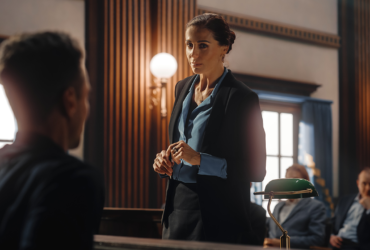Motion for new trial is made when one party believes an error of law was made that will unfairly prejudice the outcome of the case
The motion requests the court to consider granting a new trial due to an error of law or substantial prejudice that resulted in an unfair trial for which the error or prejudice could not be overcome with a correcting jury instruction.
Rarely Granted
Trial courts deny over ninety percent of motions for a new trial. The most common recourse is to file an appeal requesting a review of the lower court’s ruling.
To prevail on appeal, the moving party must show that the trial committed a legal error of a substantial and material nature.
Self-Serving Denial of New Trial Motions
Since the same trial judge decides the motion for a new trial, a judge will rarely find fault with their own ruling. Lawyers refer to such self-serving rulings as the “black robe” syndrome.
Grounds For Motion For New Trial In Civil Cases
The legal grounds for granting a motion for a new trial in civil court, the trial record must show that a substantial and prejudicial error of law occurred, or that there was a prejudicial irregularity in the court proceeding, or that there was jury or lawyer misconduct at the trial.
Grounds For Motion For New Trial In Criminal Cases
Legal errors in criminal cases that cause trial courts to grant motions for a new trial are almost always based on government violations of the Fourth and Fifth Amendments and which invoke the exclusion of evidence that should not have been admitted into evidence.
Newly Found Exculpatory Evidence
In criminal cases, the court sometimes grants a motion for a new trial based on discovering new and exculpatory evidence.




